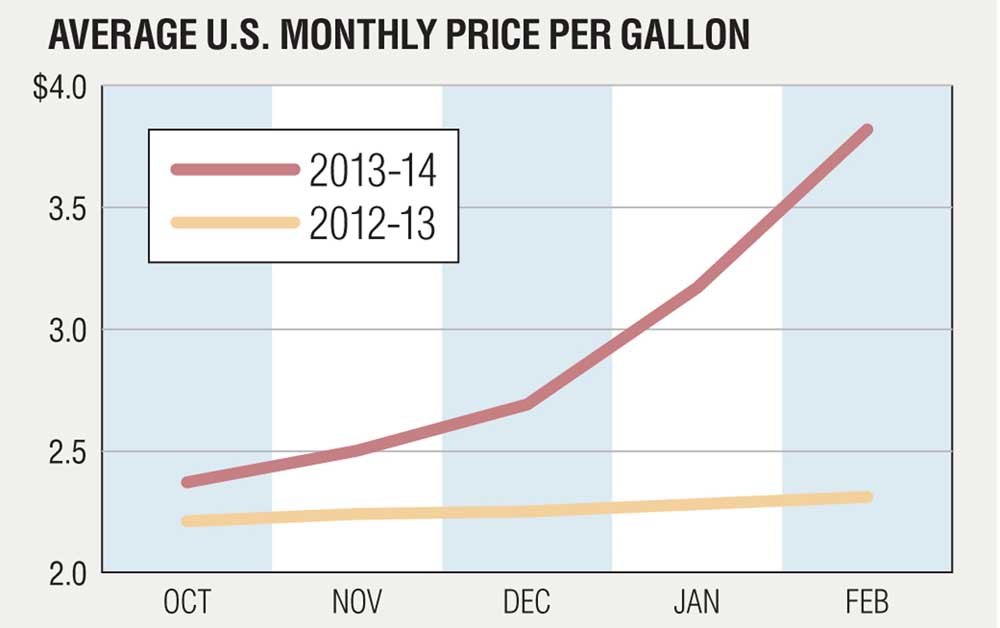Propane prices soar
Published 12:00 am Friday, February 14, 2014

- Propane prices soar
When Bill Koontz bought propane in December to heat his Bend home, he paid $2.69 a gallon. But when he went to fill up about three weeks ago, the price had nearly doubled.
“I had a certain amount budgeted for it, and it went over it by a couple hundred dollars. I had to put it on my credit card,” he said.
Koontz isn’t the only one.
About 23,650 Oregon homes — or about 1.5 percent — used propane for heat in 2012, according to census data, but some also use propane to fuel their barbecues and others to power their vehicles.
The average per-gallon price nationwide jumped by $1.05, to $4.01 per gallon, Jan. 27, according to the U.S. Energy Information Administration. It was the largest single weekly price increase since the agency began its surveys in 1990.
Since then, prices have decreased by about 25 cents per gallon, coming in at $3.76 on Monday, according to the agency. But that’s still nearly $1.50 per gallon higher than a year ago.
Scott Brockelmeyer, media relations for Kansas-based propane company Ferrelgas, said people throughout the country who rely on propane to heat their homes are facing higher-than-normal prices. He said residential customers served by the Bend office are currently paying around $5 per gallon.
“Much of the product that supplies local residents originates at a major U.S. propane supply hub in Conway, Kansas, and is shipped to Oregon via rail,” he wrote in an email. “In recent weeks, the wholesale price per gallon at Conway, Kansas, sold at more than two times the record previous high.”
As middle men in the propane supply chain, Brockelmeyer said, retailers are passing along the higher prices to end users.
“When wholesale propane prices ease, the retail price charged to consumers also decreases,” he wrote.
Simon Bowman, manager of investor relations and treasury for AmeriGas, said three major factors have combined to send propane prices higher.
Wholesale prices have increased more than 50 percent over last year. Transportation costs have skyrocketed due to the strained delivery system. And demand has increased, mostly due to colder temperatures in many parts of the country. It becomes a simple law of economics — supply versus demand, he said.
Koontz, who fills a 150-gallon tank to not only heat his home in the Juniper Mobile Park off U.S. Highway 97, but also his hot water heater, said he has come up with a new solution.
“I got electric heaters, and hopefully, that will cut down on the bill. But you know how expensive electric can be,” he said.
—Reporter: 541-617-7818,
rrees@bendbulletin.com








